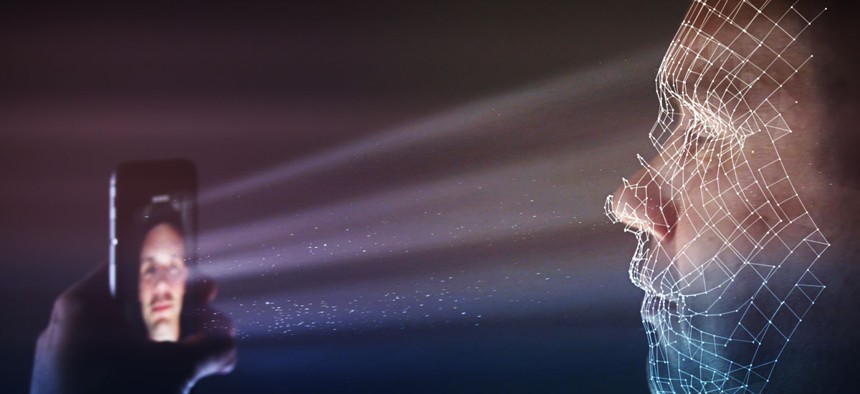Report: Men Are More Comfortable Giving Up Biometric Data Than Women Are

sp3n/Shutterstock.com
Women are more than twice as likely as men to say they don’t want the government collecting any of their biometric information.
Some agencies are doubling down on biometric technology as a way to improve the way they serve citizens, but a recent study found many people aren’t comfortable with the government stockpiling their sensitive data, especially women and millennials.
A majority of people said they’d be willing to share their fingerprints, driver’s license and passport numbers with the government if it got them better service, but the more personal the data, the less receptive they were.
While 45 percent of people would hand over their Social Security numbers to the federal government, only 36 percent of respondents said they’d be open to agencies using facial recognition technology and 27 percent would agree to a retina scan. Roughly 30 percent of people were comfortable sharing voice ID for better service, and just 7 percent would willingly receive a microchip implant from the government.
Most people balk at advanced data collection, but men were more likely than women to share their information for every category of biometrics.
More than half of men were willing to share Social Security numbers for improved customer experience, compared to only 36 percent of women. Male participants were also about 10 percent more likely than women to willingly hand over fingerprint, facial recognition and voice data, and were more than twice as comfortable with retina scans.
A full 12 percent of men would agree to a government microchip implant compared to just 3 percent of women, and while more than one-third of women don’t want the government didn’t have any of their biometric data, only 16 percent of men felt the same.
The survey, conducted in February by Accenture Federal Services, is based on responses from 500 residents of the D.C. metro area.
Researchers also found notable differences between various generations’ willingness to share biometric data, with older respondents tending to give up more information than younger ones.
The sentiment toward Social Security, passport and driver’s license numbers is fairly consistent across age groups, but people born before 1964 were roughly 12 percent more likely to give up fingerprint data than those born later. Similarly, more than 40 percent of baby boomers felt comfortable with retina scans while only 24 percent of Gen Xers and millennials felt the same way.
Even as agencies roll out more biometric tools in airports and online, citizens have grown more skeptical of the technology in recent years. Support for retina scans and voice recognition tools dropped roughly 10 percent when comparing the recent results to those of a similar survey conducted in January 2016.






